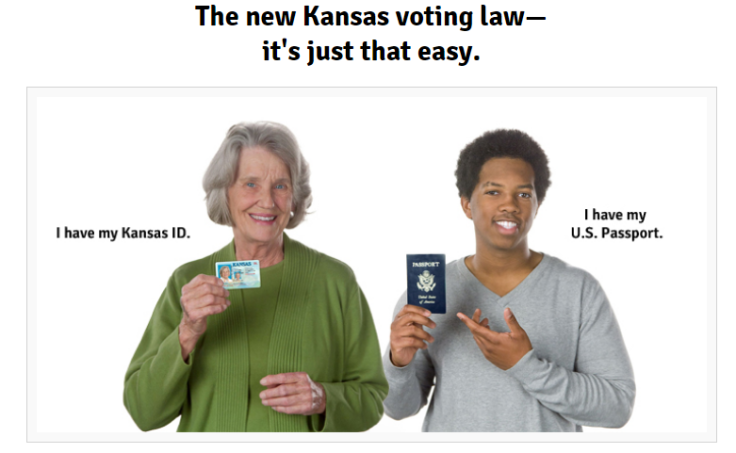Voter ID Laws: Time, Money Are Obstacles For The Working Poor Looking To Vote

If you had to choose between using your money to feed yourself for a day, or paying for a voter identification card, what would you do? What about taking a day off from a job that doesn’t give paid time so you can get an ID to vote?
Thousands of voters had to make these difficult decisions in recent weeks in Texas, Mississippi, Kansas and in other states with voter ID laws that are seen by critics as onerous, especially for the homeless and working poor. Proponents of the laws claim they stop voter fraud. Roughly 11 states have enacted such laws since Georgia became the first to do so in 2005, according to a tally by the National Conference of State Legislatures. If a valid ID isn’t shown, the voter fills out a provisional ballot that is only counted if the voter is able to show proper ID within a few days after casting the ballot.
U.S. Supreme Court Justice Ruth Bader Ginsburg, who was in the minority on the recent Supreme Court decision that temporarily stayed a federal judge’s ruling prohibiting Texas’ voter ID law, wrote in her dissenting opinion earlier this month about the financial hardships that some 600,000 Texans without one of the seven forms of acceptable identification to vote would have to face. “[A]pplicants for an election identification certificate ordinarily must present a certified birth certificate. A birth certificate, however, can be obtained only at a significant cost -- at least $22 for a standard certificate sent by mail,” Ginsburg wrote. “And although reduced-fee birth certificates may be obtained for $2 to $3, [Texas] did not publicize that option on the [Department of Public Safety’s] Web site or on Department of Health and Human Services forms for requesting birth certificates.”
For the working poor, the costs involved in obtaining a voter ID are a serious hurdle, Dale Ho, director of the American Civil Liberties Union's Voting Rights Project, said. “You’re asking people to essentially make the decision between eating for a day or buying a birth certificate,” he said.
Time is another obstacle. About one-third of Texas counties don’t have a Department of Public Safety office, the state’s equivalent of the Department of Motor Vehicles. Some Texans face a 200-mile round trip if they want to get a voter ID. In Wisconsin, where a separate Supreme Court ruling temporarily blocked the state’s voter ID law, half of the DMV offices are open only two days a week or less. For waitresses or people with other service jobs who don't have paid time off, that means sacrificing a day of pay to get a proper ID to vote. “That might be more challenging than coming up with the $20 for a birth certificate,” Ho said.
© Copyright IBTimes 2024. All rights reserved.






















